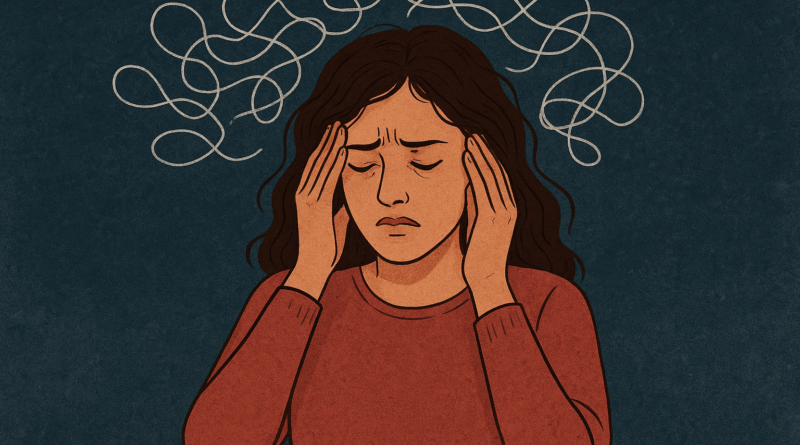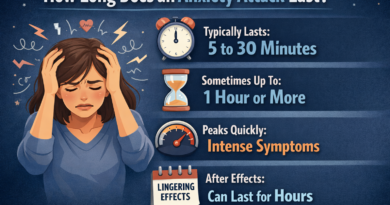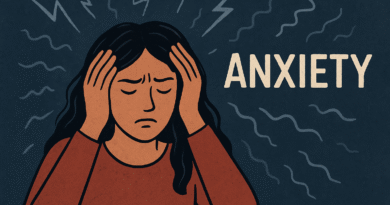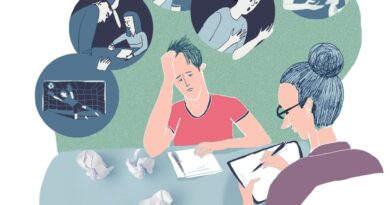The Silent Struggle: Understanding Anxiety in Women
The Silent Struggle: Understanding Anxiety in Women
I used to think anxiety in women was just about stress, but for those of us who live with it, the weight is far heavier than that. It’s hard to explain, but my own journey proved that women in anxiety has been both heavy and revealing. Society accepts the women with the boundaries, and they tell us to be strong, to hold everything, to be daughters, mothers, caretakers, and professionals, but they never accept that we are also our own dream. Many of us battle with restlessness, tension, overthinking, and fear, and doctors describe it as anticipatory anxiety.
Here I want to tell you truly what it means to live with anxiety as a woman—the restless grip of anticipatory anxiety how can Ambien or Xanax play the role of managing anxiety? My aim is for the discussion to be a real conversation to remind us that, in medical terms, there are real people who hurt, who are waiting for someone, or who find peace.
Why Anxiety Hits Women Differently
The truth about anxiety in women is often misunderstood. We face the higher rates found to be more than men and face the different changes like cultural standards and hormonal change, and the pressure to best perform multiple roles only makes the battle harder.
When the anxiety first entered my life, it did not come with the dramatic panic attacks you see in movies. It arrived quietly to an overthinking mind at midnight, a tension that never let go, or a heartbreak that was hard to handle, anticipating the impossible outcome. That cycle has a name: anticipatory anxiety.
Society tells women to be strong and keep managing everything together, like relationships, responsibilities, and family, but when the anxiety becomes too much, we feel guilty for not being enough. Is the silent struggle that needs to end.
Anxiety in Women: Side Effects
There are the side effects that are found the most when a woman is suffering from anxiety.
- Headaches
- Low self-love or guilt
- Stay away from family, friend
- Muscle tension
- Overthinking
- Trouble sleeping
- Panic attacks
- Mood changes
Restless Night: Women Face Anxiety
One of the hardest moments of anxiety in women how it makes for a restless night. Anxiety does not respect bedtime. I would lie in the bed with a fast heartbeat, recalling the past moment, starting at midnight, telling myself. If I do not sleep soon, tomorrow will come. I did think the harder I tried, the worse it became.
That was When I first knew about Ambien. Ambien is a prescription medication that helps you fall asleep (insomnia) connected with anxiety. It does not erase the worst, but it calms the mind enough to allow falling asleep. But also remember that Ambien is used for the short term because it carries side effects.
What is Anticipatory Anxiety?
I like to think of anticipatory anxiety as the mind preparing for a storm that may never come. It is that sleepless night before a big meeting of fast heartbeat and the tight chest or an unexpected sense of dread about daily tasks.
Living with anticipatory anxiety is to live in the world of “What if.”
What If I failed the interview?
What If I make a fool of myself?
What If something goes wrong?
Even when the fear never comes true, the cycle persists. I have skipped social events to avoid them. Many women, including myself? I started avoiding social events or delaying opportunities—not because I did not want them, but because the thought of what could happen sappad my energy.
Managing Daytime Anxiety: How Xanax Can Help
Ambien helps with sleep, but Xanax is used for daytime anxiety. When I first heard, I thought that it was a quick-fix medication, but I soon realized that it could provide relief for the anxiety.
I remember times I could not step into a crowded place or even answer the phone without feeling my chest tight. Within under medical guidance, never take an overdose of medication because it also has side effects.
However, both Ambien and Xanax come with side effects. Dependence is a real risk, and they are not long-term solutions. That’s why together them with therapy, mindfulness, and lifestyle changes is essential. They are tools, not magic.
Managing Anxiety: Natural ways to Support your treatment
Ambien and Xanax provide relief; I have also found comfort with natural ways.
- Exercise: Daily exercise that helps to reduce your anxiety.
- Mindfulness: Focusing on your present moment helps to quiet overthinking of anticipatory anxiety.
- Writing: Write your thoughts and fears that really reduce your stress.
- Support: Sharing experiences with other women reduces anxiety and builds trust.
These practices are mixed with medication or natural support.
Understanding the Stigma of Anxiety in Women
One of the hardest parts of living with anxiety in women. People may call us sensitive or overreacting. I can not count the number of times I have been just told to just calm down or stop overthinking.
The reality is that anxiety does not choose; it is a side effect of real mental health conditions Medications such as Ambien and Xanax don’t erase our identity; they provide support to help women manage symptoms and reclaim aspects of life disrupted by anxiety.
A Woman’s Journey with Anxiety
Today I realized that living with anxiety does not mean letting it define me. I mean, facing the struggle, still finding the way to keep moving. Some days look like that: learning with Ambien and taking rest. Some days Xanax helps me overcome the panic attacks and helps me focus on my work.
The quiet struggle makes women become less talk so when we talk about it openly, medications, anticipatory anxiety, and the weight it carries.
Final Thoughts
The silent battle with anxiety in women is both deeply personal and ready shared. Whether it shows up as anticipatory anxiety, sleepless nights treated with Ambien, or overwhelming days eased with Xanax, the truth is there are paths to relief.
What matters most is finding the courage to seek help, natural support, and understanding that struggling does not mean failing. It means you’re human. It also helps to break the cycle of anxiety.




